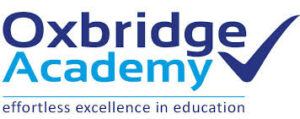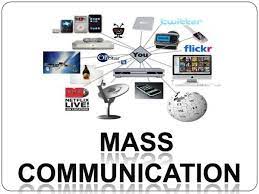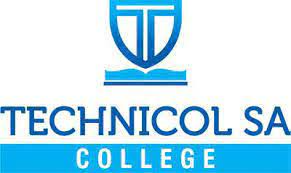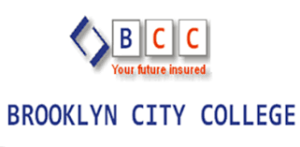University Courses: What To Know About Accounting – A Detailed Guide
Accounting is often called the “language of business” because it provides a comprehensive system for recording, analyzing, and reporting financial transactions. Whether you’re aiming to become a certified public accountant (CPA), a financial analyst, or a corporate controller, a degree in accounting offers a solid foundation to pursue various high-demand careers in finance and business. As the global economy becomes more complex, the need for skilled accountants continues to rise, making accounting one of the most versatile and rewarding fields of study.
If you’re considering pursuing an accounting degree in 2027, this guide will provide you with valuable insights into what you can expect from university courses, the skills you will gain, and how an accounting degree can open doors to a wide range of career opportunities.
What is Accounting?
Accounting is the process of recording, classifying, and summarizing financial transactions to provide useful information for decision-making. It plays a critical role in every business, helping stakeholders—whether they are owners, managers, investors, or regulators—understand the financial health of a company or organization. Accountants use various techniques to prepare financial statements, track cash flow, ensure compliance with tax laws, and provide strategic financial advice.
In short, accounting serves as the backbone of financial management, providing data that is essential for business decisions.
Why Choose Accounting?
Choosing accounting as a career path has several benefits, which is why it remains one of the most popular and stable fields for students. Here are some compelling reasons why you might want to pursue an accounting degree:
1. High Demand and Job Security
Accounting is an evergreen profession. Businesses, governments, and non-profit organizations rely on accountants to ensure financial integrity, compliance with laws, and efficient operations. Because virtually every business needs an accountant, accounting professionals are always in demand. According to the U.S. Bureau of Labor Statistics (BLS), job growth for accountants is expected to grow at a rate of 6% from 2021 to 2031, which is in line with the average for all occupations.
2. Lucrative Earning Potential
Accounting is often associated with high earning potential, particularly as you gain experience and move into senior roles. Certified Public Accountants (CPAs) and Chartered Accountants (CAs) tend to earn higher salaries than other professionals in the finance industry. For example, financial accountants, auditors, and tax managers can earn six-figure salaries, and partners in accounting firms can earn even more.
3. Diverse Career Opportunities
One of the greatest advantages of an accounting degree is the sheer variety of career opportunities it offers. After graduation, you can pursue roles such as:
- Certified Public Accountant (CPA)
- Management Accountant
- Financial Analyst
- Auditor
- Tax Advisor
- Forensic Accountant
- Internal Auditor
- Government Accountant
- Cost Accountant
- Actuary
- Financial Consultant
4. Transferable Skills
Accounting programs equip students with a range of skills that are applicable across many industries. Beyond technical accounting knowledge, you will learn to think analytically, solve complex problems, and communicate financial information clearly. These skills make accounting graduates highly adaptable and valuable in a wide range of sectors, from banking and finance to healthcare, government, and non-profits.
5. Global Career Prospects
Accounting is a universally recognized profession. Whether you want to work in your home country or abroad, the skills learned in an accounting degree are transferable across borders. International accounting firms, multinational corporations, and even governments need skilled accountants, making this profession ideal for those seeking global opportunities.
What to Expect from an Accounting Degree in 2027
University accounting programs are evolving in response to the changing business landscape. Here’s what you can expect from an accounting degree in 2027:
1. Increased Focus on Technology
With the rise of automation and digital tools, technology is revolutionizing the accounting profession. In 2027, accounting students can expect to learn how to use advanced software for tasks such as data analysis, financial reporting, and tax preparation. Technologies such as blockchain, artificial intelligence (AI), and machine learning are becoming integral to accounting practices. As a result, students will likely take courses in accounting information systems (AIS), data analytics, and the role of technology in financial operations.
2. Sustainability and Ethical Practices
As businesses increasingly focus on sustainability and corporate social responsibility (CSR), accounting programs are starting to incorporate courses on sustainability reporting, environmental accounting, and ethical considerations in financial decision-making. This shift reflects a growing demand for accountants who can navigate the challenges of climate change, resource management, and ethical investment practices.
3. Interdisciplinary Learning
Many modern accounting programs are adopting an interdisciplinary approach. In addition to core accounting courses, students will likely be exposed to business courses in economics, management, and law. Understanding the broader context in which accounting decisions are made can help students become more well-rounded professionals and better equipped to tackle complex business challenges.
4. Specialized Certifications and Pathways
While a bachelor’s degree in accounting provides a strong foundation, many universities now offer specialized certifications that allow students to pursue niche areas of accounting. In 2027, students may have the opportunity to earn certifications or take courses that focus on areas such as forensic accounting, international accounting, and advanced taxation. Some programs may even allow students to prepare for exams like the CPA or the Chartered Financial Analyst (CFA) certification during their studies.
5. Emphasis on Soft Skills
In addition to technical accounting knowledge, today’s employers are looking for accountants who possess strong communication, problem-solving, and teamwork skills. As part of the curriculum, universities are placing more emphasis on developing these soft skills, helping students work more effectively with clients, colleagues, and management.
6. Hybrid and Online Learning
The popularity of online and hybrid learning formats continues to grow in 2027, providing students with greater flexibility in how they complete their accounting degree. Many universities offer online accounting programs or hybrid formats that combine in-person and online learning, which is ideal for working professionals or students seeking a more adaptable learning schedule.
Core Courses in an Accounting Degree
Most accounting programs follow a similar structure, offering a blend of foundational courses and specialized subjects. Here’s a breakdown of the typical courses you can expect in an accounting program:
1. Introduction to Accounting
This foundational course covers the basic principles of accounting, including double-entry bookkeeping, financial statements, and the accounting cycle.
2. Financial Accounting
Students learn how to prepare and interpret financial statements, including balance sheets, income statements, and cash flow statements. This course also covers the Generally Accepted Accounting Principles (GAAP) used in financial reporting.
3. Managerial Accounting
This course focuses on using accounting information for decision-making within a company. Topics include cost analysis, budgeting, and performance evaluation.
4. Intermediate Accounting
A deeper dive into financial accounting, this course covers complex topics such as revenue recognition, pensions, leases, and income taxes.
5. Auditing
Auditing teaches students how to examine financial records to ensure accuracy and compliance with laws and regulations. Students learn auditing procedures, risk assessments, and fraud detection.
6. Taxation
Taxation courses focus on the principles of taxation and tax law. Students learn how to prepare individual and business tax returns, as well as the intricacies of corporate tax planning.
7. Accounting Information Systems
This course introduces students to the technology and software tools used to manage accounting data and processes. Students will learn how to use accounting software for tasks like data entry, financial reporting, and decision-making.
8. Cost Accounting
Cost accounting deals with the allocation of costs in a business. Students learn how to determine product costs, evaluate cost behavior, and perform break-even analysis.
9. Ethics in Accounting
Ethics courses are critical to ensuring that accountants adhere to high standards of integrity and professionalism. Topics include conflicts of interest, corporate governance, and ethical decision-making.
10. Advanced Accounting
This course covers more complex accounting topics such as mergers and acquisitions, foreign currency transactions, and the accounting for partnerships and joint ventures.
Career Opportunities with an Accounting Degree
Graduates with a degree in accounting have numerous career options, depending on their interests and skills. Here are some popular career paths:
1. Certified Public Accountant (CPA)
CPAs are licensed professionals who provide a wide range of services, including tax preparation, financial auditing, and consulting. CPAs are highly respected and are often the go-to experts for complex financial issues.
2. Financial Analyst
Financial analysts analyze financial data to help businesses make informed investment decisions. They evaluate market trends, prepare financial models, and assess the financial health of organizations.
3. Auditor
Auditors review financial statements and records to ensure accuracy and compliance with regulations. They can work internally for an organization or as external auditors for accounting firms.
4. Tax Consultant
Tax consultants help individuals and businesses minimize their tax liabilities by providing tax planning and preparation services. They ensure that clients comply with tax laws and regulations.
5. Forensic Accountant
Forensic accountants investigate financial fraud, embezzlement, and other financial crimes. They may work with law enforcement or legal teams to uncover illegal financial activities.
6. Management Accountant
Management accountants focus on internal financial management, providing decision-making support through budgeting, cost analysis, and financial planning.
7. Internal Auditor
Internal auditors evaluate and improve internal control systems to ensure compliance with financial regulations and to prevent fraud.
8. Corporate Finance Specialist
Corporate finance professionals work with businesses to manage financial operations, raise capital, and make investment decisions.
A degree in accounting offers solid career prospects, high earning
potential, and a wide array of opportunities in the business world. As businesses become more globalized and technology-driven, the demand for skilled accountants will continue to grow. If you’re looking for a challenging and rewarding profession with the potential to make a significant impact, accounting could be the right path for you.





